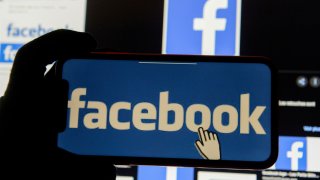
- The company's "conversion lift" tool suffered a glitch that reportedly affected thousands of ads between August 2019 and August 2020.
- Facebook will provide a "one-time credit" to affected advertisers.
- The social network's ad revenue reached $21.2 billion in its third quarter, up 22% on the year prior.
LONDON — Facebook is repaying some advertisers after misreporting one of the measures of their ads' likely effectiveness over the course of a year.
The company's "conversion lift" tool suffered a glitch that reportedly affected thousands of ads between August 2019 and August 2020.
Facebook fixed the error in September and is now offering a credit to clients "meaningfully affected" by the bug.
Conversion lift helps brands understand how ads lead to sales, using a "gold-standard methodology" that links ads on Facebook's platforms, including Instagram, to business performance, according to an explanation of the tool on Facebook's website.
The free tool shows ads to separate test and control groups and then compares sales conversions for each. Then, based on the results of the study, an advertiser can decide how much to spend on the social network.
But advertisers were only alerted to the error this month, according to a report on the AdExchanger website. Facebook was not immediately available to comment on this issue when contacted by CNBC on Thursday.
Money Report
"While making improvements to our measurement products, we found a technical issue that impacted some conversion lift tests," according to a Facebook spokesperson in an email to CNBC. "We've fixed this and are working with advertisers that have impacted studies." A "small number" of advertisers were affected, and they will get a "one-time credit," according to the company.
This isn't the first time Facebook has admitted mistakes in reporting. In September 2016, it said it overestimated the average time people spent viewing video ads over a two-year period, and in 2017 a report found that Facebook claimed to reach more people in some U.S. states and cities than official population data said existed in those areas.
Facebook is a major advertising platform, whose revenue comes largely from smaller advertisers. Its ad revenue reached $21.2 billion in its third quarter, up 22% on the year prior, and it expects holiday demand to increase ad revenue in the fourth quarter.






